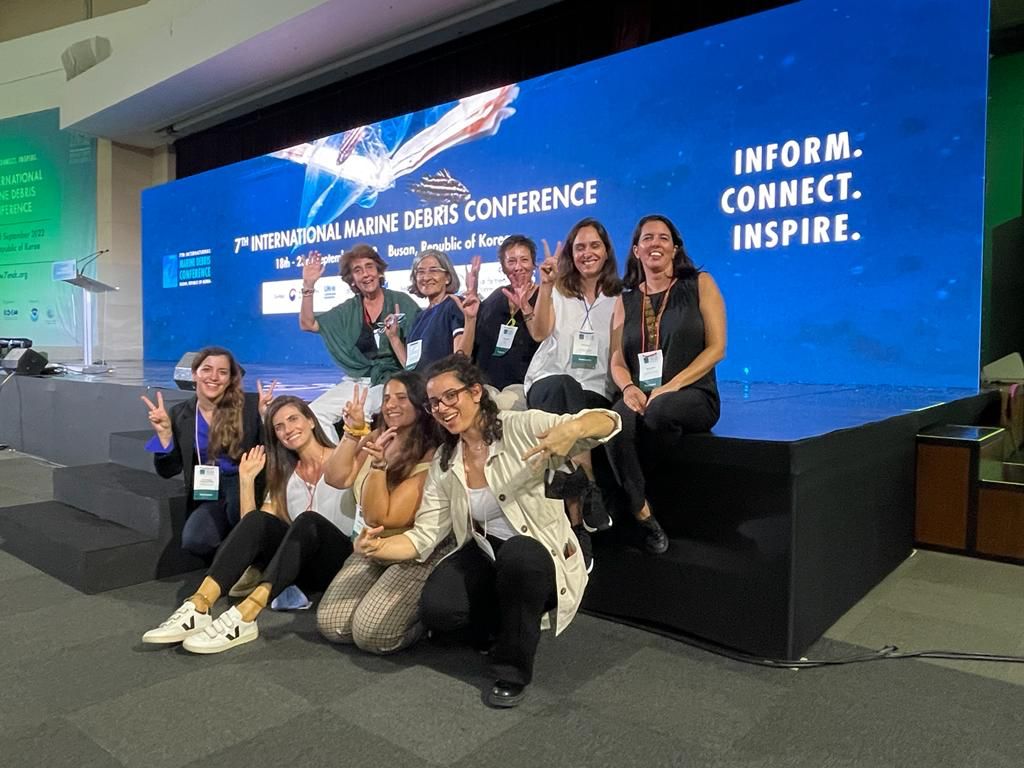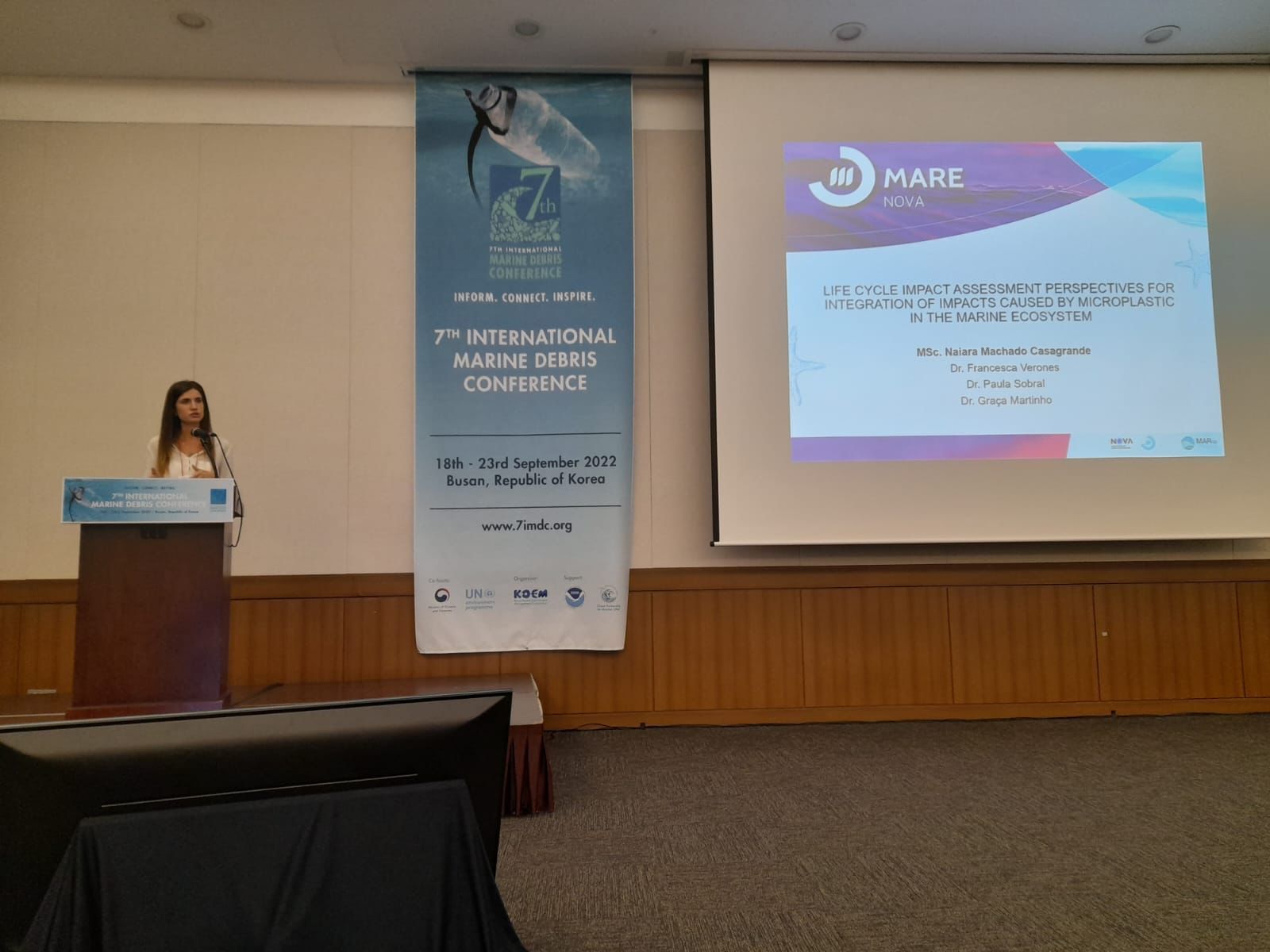Participation at the 7th International Marine Debris Conference (7IMDC)

Naiara Casagrande, who is affiliated with ATLANTIS, attended the 7th International Marine Debris Conference (7IMDC) with a group of research from NOVA University of Lisbon, Portugal. The conference took place from the 18th to the 23rd of September 2022 in Busan, Republic of Korea. This was the first to be held outside the United States dedicated to the issue of marine litter and plastic pollution and was the world’s longest-running international conference series. The conference brought together governments, industry, academia, civil society, and all relevant stakeholders, to discuss the latest science, strengthen collaborations, find solutions and catalyse action to address the urgent, global problem of marine litter and plastic pollution.

The conference was divided into 9 sessions which included Monitoring; Research; Technology & Innovation; Education, Awareness & Communication; Regulations, Laws & Policy; Circularity & Waste Management; Economics-Financing & Private Sector Engagement; Sea-based Sources; International Collaboration. Naiara presented her research entitled “Life Cycle Impact Assessment perspectives for integration of impacts caused by microplastic in the marine ecosystem” in the session entitled "The future of the science of monitoring". This was an update of how LCA researchers are using data on microplastic pollution in order to address the environmental impacts in the methodology.

Multiple options for field trips were included in the program at the 7IMDC, organized to occur on Wednesday afternoon. Naiara attended the field trip which included an industry tour at Netspa, Busan Resource Circulation Cooperation Center and the Nakdong Estuary Eco-center. The Netspa is an interesting fibre manufacturer which produces eco-friendly textiles by recycling abandoned fishing nets. Netspa works in partnership with the Busan’s government which establish a system for separate disposal of abandoned fishing nets, while Netspa charges of washing and processing the collected fishing nets. It was a great opportunity to meet this industry and their work on recycling fishing nets as South Korea has a huge fishing industry.
On the last day of the conference, attendees were invited by the Ocean Conservancy and Our Sea of East Asia (OSEAN) to a Beach Clean up and data collection exercise. The groups of participants collected microplastic from the Gwanganli beach and registered their characteristics in the CleanSwell app. The conference was also a great opportunity to meet the research community on plastic pollution and the beautiful country of the Republic of Korea. These connections brings new ideas, exchanges of scientific knowledge and creates great memories.

